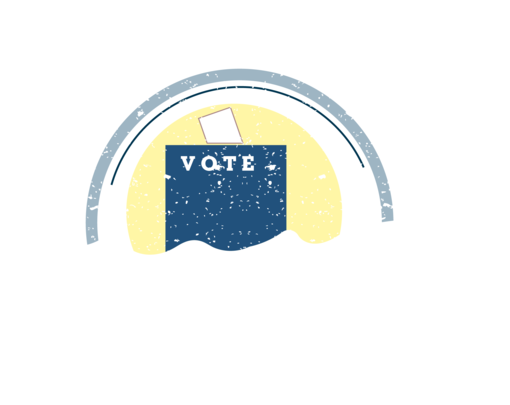What is liberty?
The prevailing discourse on liberty in the United States, largely dominated by those on the conservative right, focuses on a negative conception: the importance of being free from restrictions on speech, on gun ownership, on religious beliefs and practices, and even, at the limit of this conception, from government itself. However, there is a far more expansive notion of liberty—one which combines protections from arbitrary power with fostering the material and social preconditions that allow people to flourish and have the power to develop as human and political subjects. In this conception, freedom is positive as well—the freedom to engage in the life of one’s community, for instance, depends on having at one’s disposal the means of subsistence—no one who is hungry is free, no matter how many constitutional rights protect them from government overreach.
It is important to understand that the traditional US conception of liberty—both in traditional conservative thought and as originally postulated in the Constitution, at least for those enjoying racial and gender privilege, also depended on positive theory: the necessity, at that point in history, of preserving an institutional foundation of small property-holders (mainly famers and small businessmen) as the framework upon which liberty would be realized. The realities of actually existing corporate capitalism, however, are a far cry from the “yeoman farmer” and individual entrepreneurial ideal. One goal of the Pluralist Commonwealth is to help define a new institutional framework adequate to an expanded and updated conception of freedom.
Why must liberty be a central part of the design for the pluralist commonwealth?
It is essential that progressives not cede the notion of freedom to the right; indeed—we should view any design for a system which does not incorporate, in its core structural principles, a respect for individual liberty as fundamentally flawed. While it is of course the case that a doctrinaire libertarianism fails to confront the severe limits corporate power places on individual freedom, the critiques of BUREAUCRATIC and totalitarian state socialism are very real and very important. Addressing them in the design of our systemic alternative makes it possible to speak and be heard beyond the self-contained echo chamber of the left. Here DECENTRALIZATION and PLURALISM are key strategies, the former by making power as small scale as is feasible except in those cases where larger alternatives are necessary, the latter by ensuring that no single political economic mechanism enjoys total power in the overall design. The matrix which supports freedom in the Pluralist Commonwealth is a diverse set of institutions, scaled wherever possible to enable community participation and control and designed to enable ordinary people to flourish.
A second key point is that economic security is a necessary condition for self-determination. Since the time of Jefferson’s yeoman farmer, to Franklin Delano Roosevelt’s “Second Bill of Rights” address that included the “right to a useful and remunerative job,” economic security and independence has long been part of American conceptions of liberty.1 To take a more concrete example, the security provided by tenure is recognized as central to the idea of academic freedom. Only with real security can most people say and do whatever they find meaningful, clearly and forcefully. Today, the hierarchical and authoritarian corporate workplace—operating in a context of deindustrialization, globalization, climate change, and automation—requires reconceptualizing economic freedom. In the 21st century, economic liberty may incorporate a federal job guarantee, a universal basic income, or some combination of the two. Past proposals provide some precedent for future efforts. Nixon’s Family Assistance Plan, for instance, would have provided a guaranteed annual income for poor families,2 while the Humphrey-Hawkins Full Employment Act initially incorporated a jobs guarantee when first introduced in 1974.3 A final fundamental reality is the dependence of liberty on time. Individual liberty can never be fully realized if people must work devastatingly long hours simply to feed and shelter their families. Put another way, only those individuals who have time which can be disposed of as they see fit enjoy anything resembling meaningful liberty. Thus, the Pluralist Commonwealth understands the need to reduce the working week—not only because of the need for a more egalitarian distribution of social income—but because free time is a necessary condition of liberty to participate equally as a full member of the community.
Where is a renewed conception of liberty being developed on the ground today?
Interest in the idea of a universal basic income, a modern approach to addressing some of these issues, is taking off. Sophisticated experiments are now being piloted in several jurisdictions including the Netherlands, Kenya, and in Oakland, California.4
By decoupling basic survival from the need to work, a basic income makes possible many life choices that would otherwise be foreclosed by the imperative of employment. While we should be careful about the impulse behind many conservatives’ embrace of a modest basic income as a way to dismantle the welfare state and undercut the idea of decommodified, public goods. We should also recognize the unique opportunity offered by new technologies to provide shared prosperity and press for the modern material and institutional preconditions for true freedom and liberty.
See also:
BUREAUCRACY, DECENTRALIZATION, PLURALISM
Further reading
Amartya Sen, Development as Freedom (New York, NY: Anchor Books, 1999).
Brain Steensland, The Failed Welfare Revolution: America’s Struggle over Guaranteed Income Policy (Princeton, NJ: Princeton University Press, 2008).
Juliet Schor, True Wealth: How and Why Millions of Americans Are Creating a Time-Rich, Ecologically Light, Small-Scale, High-Satisfaction Economy (New York, NY: Penguin Books 2010)).
Kathi Weeks, The Problem with Work: Feminism, Marxism, Antiwork Politics, and Postwork Imaginaries (Durham, NC: Duke University Press, 2011).
Philippe Van Parijs, Real Freedom for All (New York, NY: Oxford University Press, 1995).
Robert Nisbet, The Quest for Community: A Study in the Ethics of Order and Freedom (Wilmington, DE: Intercollegiate Studies Institute, 2010 [1952]).
- 1Franklin Roosevelt, “State of the Union Message to Congress,” January 11, 1944, accessed November 4, 2016.
- 2 Brain Steensland, The Failed Welfare Revolution: America’s Struggle over Guaranteed Income Policy (Princeton, NJ: Princeton University Press, 2008).
- 3Helen Lachs Ginsburg, ”Historical Amnesia: The Humphrey-Hawkins Act, Full Employment and Employment as a Right,” The Review of Black Political Economy, 35 (2011).
- 4For the Netherlands, see: Tracy Hamilton, “The Netherlands’ Upcoming Money-for-Nothing Experiment,” The Atlantic, June 21, 2016, accessed November 4, 2016. For information on Kenya’s upcoming experiment, see: Dylan Matthews, “A charity’s radical experiment: giving 6,000 Kenyans enough money to escape poverty for a decade,” Vox, April 15, 2016, accessed November 4, 2016. For information on Oakland, see: Dylan Matthews, “Some residents of Oakland are about to get a basic income,” Vox, June 1, 2016, accessed November 4, 2016.





























